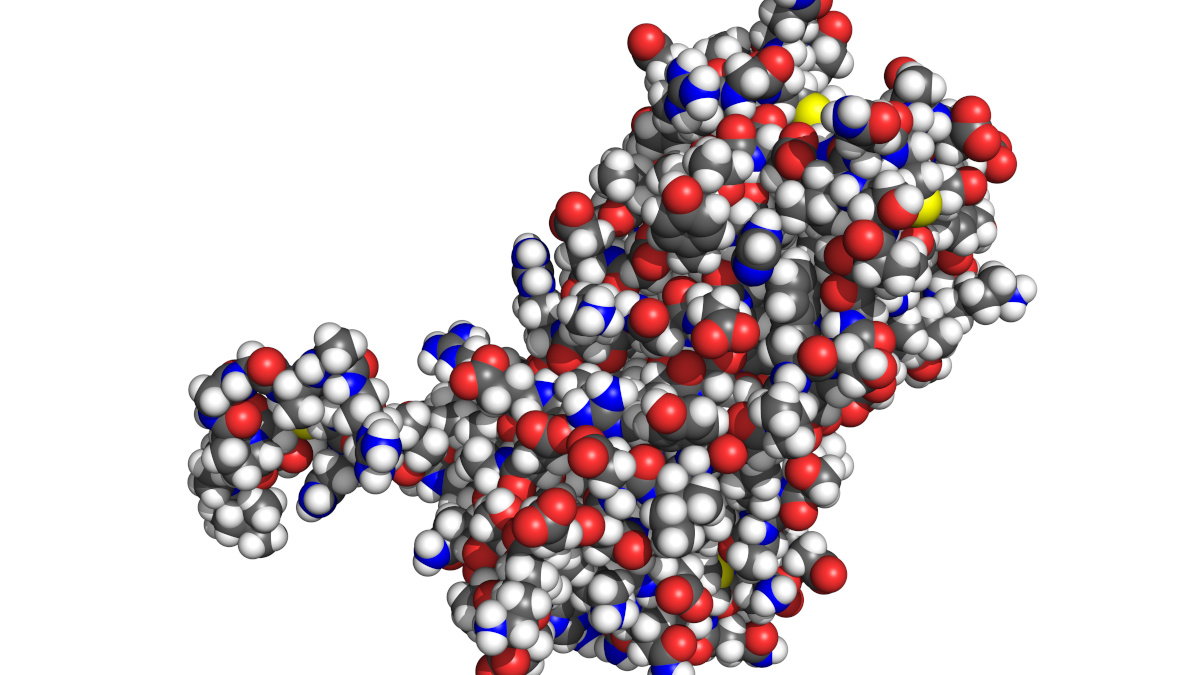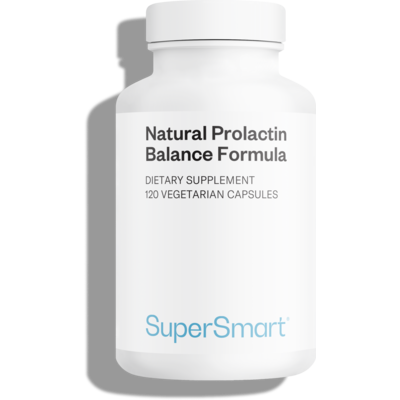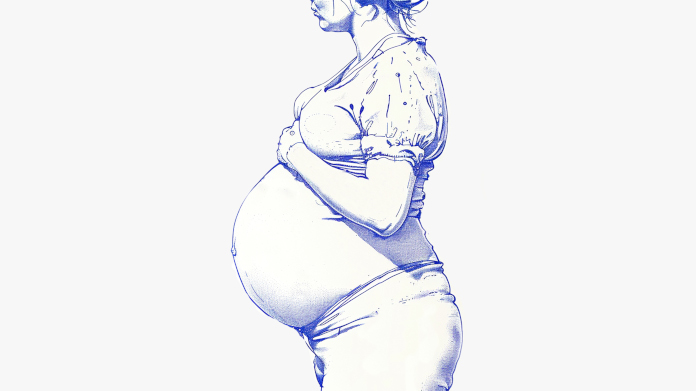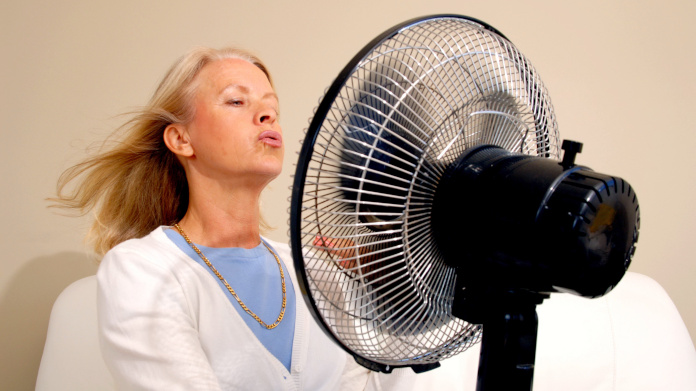What should you eat to reduce prolactin?
Prolactin is a hormone that plays multiple roles in health but which the body sometimes produces to excess. Hyperprolactinaemia, infertility, loss of libido, irregular periods, erectile problems: find out what to do to lower your levels of prolactin.

Prolactin: the lactation hormone … but that’s not all
A polypeptide hormone produced by part of the pituitary gland, prolactin is a protein primarily known for its role in lactation, the production of breast milk.
However, not only is prolactin also secreted by men, but it fulfillls several functions within the body.
Prolactin actually binds to the cell membrane receptors of female mammary glands, as well as those of the ovaries and uterus. In men, it binds to testicle cell membrane receptors.
It thus plays a role in:
- the menstrual cycle;
- male and female fertility;
- libido.
In addition, a number of studies have shown that prolactin peaks in the body just after, and several hours after, orgasm. This post-orgasm rise in prolactin contributes to the feeling of well-being and fulfilllment associated with sexual pleasure (1).
Hyperprolactinaemia and fertility, libido, erection and the menstrual cycle
For various reasons (certain medical treatments, thyroid and other problems), the pituitary gland can sometimes produce too much prolactin: when levels of monomeric prolactin in the circulation reach more than 900 mIU/L, it is referred to as hyperprolactinaemia (2).
Hyperprolactinaemia can cause various problems (3):
- disruption to the menstrual cycle, even amenorrhea;
- spontaneous galactorrhoea (a nipple discharge in both women and men);
- infertility, even sterility (4);
- erectile problems, even impotence;
- loss of libido.
Hyperprolactinaemia affects, on average, 1 woman in 1000 and 1 man in 5000.
It’s also worth noting that the happiness hormone inhibits prolactin secretion.
Which diet should you choose to reduce prolactin?
Firstly, it’s been shown that people suffering from anorexia and those with very low blood sugar have high prolactin levels (5). Conversely, those who eat a heathy, balanced diet, with no specific diseases, generally have normal prolactin levels.
So the first step is to maintain a healthy, balanced diet with plenty of fresh, raw fruits and vegetables, high in vitamins and antioxidants. Alcohol also causes hyperprolactinaemia (6).
It’s also important to ensure your diet does not contain any lactogenic foods – those that stimulate prolactin secretion. So the following plant source foods should ideally be excluded from the diet (7):
- fennel;
- fenugreek;
- oats;
- sesame, almonds, hazelnuts, cumin;
- green aniseed;
- basil;
In other words, in order to promote a reduction in prolactin, you should avoid all the foods recommended to new mums for increasing lactation.
Which remedies are good for lowering prolactin?
In addition, several remedies have proved effective in regulating either hormones in general, or prolactin in particular. They include:
- Vitamin B6, recognized for helping to regulate hormones (8);
If you’re worried about a symptom of hyperprolactinaemia or simply want to lower your prolactin levels, you can also take a synergistic supplement such as Natural Prolactin Balance Formula, which contains both vitamin B6 (as well as zinc orotate, antioxidant vitamin E, American ginseng extract, etc.).
SuperSmart’S TARGETED FORMULATIONS:
References
- GOFFIN, V., TOURAINE, Ph, BINART, N., et al.Vers une nouvelle perception de la prolactine en physiopathologie humaine. Disponible sur: http://www. edimark. fr/Front/frontpost/getfiles/2993. pdf" ontpost/getfiles/2993. pdf, 2016.
- MAJUMDAR, Abha et MANGAL, Nisha Sharma. Hyperprolactinemia. Principles and Practice of Controlled Ovarian Stimulation in ART, 2015, p. 319-328.
- MAH, Peak Mann et WEBSTER, Jonathan. Hyperprolactinemia: etiology, diagnosis, and management. In : Seminars in reproductive medicine. Copyright© 2002 by Thieme Medical Publishers, Inc., 333 Seventh Avenue, New York, NY 10001, USA. Tel.:+ 1 (212) 584-4662, 2002. p. 365-374.
- SEGAL, Shmuel, YAFFE, Haim, LAUFER, Neri, et al.Male hyperprolactinemia: effects on fertility. Fertility and Sterility, 1979, vol. 32, no 5, p. 556-561.
- DE, Alok, BOYADJIEVA, Nadka, OOMIZU, Souichi, et al.Ethanol induces hyperprolactinemia by increasing prolactin release and lactotrope growth in female rats. Alcoholism: Clinical and Experimental Research, 2002, vol. 26, no 9, p. 1420-1429.
- AKOUEDEGNI, C. G., TOSSA, I. Gbégo, DAGA, F. D., et al.Synthèse des connaissances sur les plantes galactogènes et leurs usages en République du Bénin. Rec. Agr. Bénin, 2012, p. 24-35.
- ROSE, David P. The interactions between vitamin B6 and hormones. Vitamins & Hormones, 1979, vol. 36, p. 53-99.
Keywords
5 Days
great products and prices
great products and prices
Marie
11 Days
Easy to navigate site
Easy to navigate site, had what I was searching for, good price. easy order-check out
James Tucker
17 Days
My skin is clearing up nicely!
Pretty good for my skin so far.
Christian
19 Days
The new packaging is excellent
The new packaging is excellent - finally! No more squashed boxes and torn envelopes.
GORAN
20 Days
Great Product
Great Product
Larry Garrett
25 Days
Quick shipping
Quick shipping; good price. No issues!
Mary McCarty
26 Days
Thr product is very good and is helping…
Thr product is very good and is helping me on my health. Then is always on time
LUGO Luz
28 Days
Buying was fine
Buying was fine. I had problems with the website not recognizing my login info, and had to call to get it fixed. Other than that, everything was good.
David S. Clark
29 Days
Your super maca and super ginseng are…phenomenal
Your super maca and super ginseng are phenomenal supplements that compliment each other when taking them together. Fantastic feeling of well-being and lots of mid day energy without the crash.
Keith Mason
31 Days
I have had amazing results with every…
I have had amazing results with every supplement I've purchased. I am extremely satisfied with this company
kirstin Torres
32 Days
Fine products
Fine products . They are on the leading edge of online supplements. The only issue -so far-is they sometime run out of subscription items.
Jason Argos
34 Days
The ordering process is very user…
The ordering process is very user friendly and the products always come in a timely manner.
CARTER Rhonda
35 Days
The price for Dr
The price for Dr. Pero's AC-11 is reasonable and in line with his views. (my former colleague). Keep it pure.
CAMPBELL Clayton
38 Days
Right on every time.
Right on every time.
Arthur Nicholas
41 Days
They are cheaper than everyone else and…
They are cheaper than everyone else and the shipping was fast. Great company.
Patricia Adams





